Interview: Adam Simon Inspires VIOLENCE for The Actors' Gang
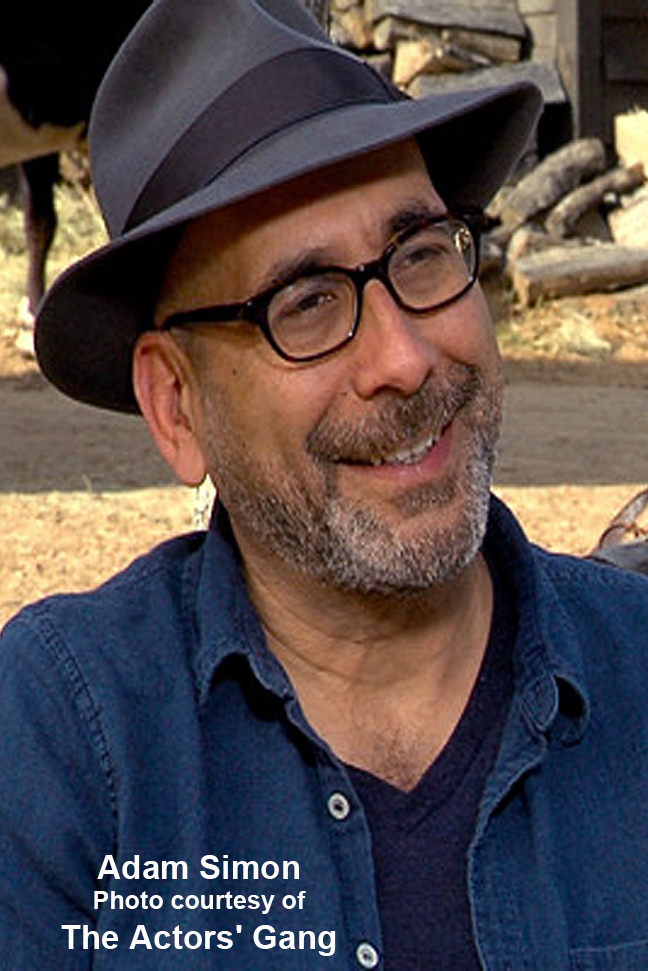
The Actors' Gang's latest production VIOLENCE: THE MISADVENTURES OF SPIKE SPANGLE FARMER has just opened this week. This revival of their original 1986 piece, co-written by Actors' Gang Artistic Director Tim Robbins and frequent collaborator Adam Simon, seems, unfortunately, timely as ever. Adam shared with me his history with Actors' Gang, Tim and Roger Corman.
Thank you taking the time for this interview, Adam!
VIOLENCE, which you co-wrote with Tim Robbins, was first performed in
1986.
Yes, it was conceived and created for the L.A. Museum of Contemporary Art ANGELS FLIGHT series of original plays.
And, as is true of all the work I did with Tim and The Gang, many of the best and funniest gags, lines, and characters came from improvisations and workshops - and the voices of 'gangsters' of that era like Lee Ehrenberg, Ned Bellamy, Brent Hinckley, VJ Foster, Cynthia Ettinger, John Cusack, Fisher Stevens and others are all over the text.
What political figures of that era would you skewering with Spike Spangle
and his cohorts?
Everyone and everything. We took a pretty shotgun approach to things. It was BB plus BB - Bert Brecht and Bugs Bunny. We certainly weren't creating for the ages, but having fun with the political and cultural chaos of that moment. If a fair bit of it still strangely rings true, I don't think we can claim any prophetic genius - it's more that the same shit just keeps happening again and again...
If there is something quite original in VIOLENCE that might be taken for granted now, it's the idea of powerful political, military, and business figures existing on the same flat plane as showbiz celebrities. I don't think that was actually quite true then. but it certainly is now!
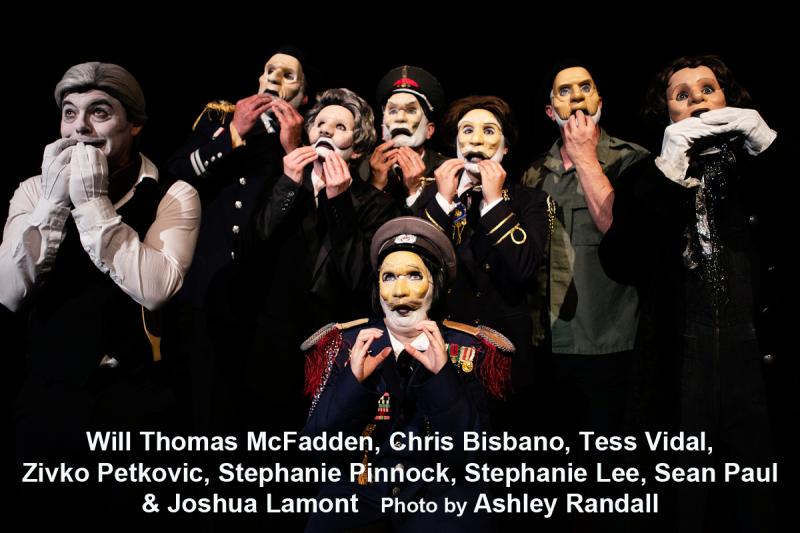 So, fortunately (or unfortunately), Spike and company are identifiable in
So, fortunately (or unfortunately), Spike and company are identifiable in
whatever year you've produced it, including 2019, right?
Some of the names that would've most amused us back then are probably completely opaque to younger audiences now. But that's OK - it's in the nature of certain kinds of satire, especially the kind I like the most - like classic MAD magazine or classic Simpsons - that they constantly skewered things that may zip right over or below the heads of the audience sometimes. I grew up reading MAD magazines that had references to movie stars and political figures that were completely foreign to me, but over time you figure out who they are or were. History, especially of popular culture, is not linear; but it's some kind of crazy leaning cursively, spiraled layer cake. So just keep eating and eventually, you'll hit a layer that tastes good.
Do you make changes to your script each time you present it?
I don't think that VIOLENCE has been performed since the 1980s. I believe the late great Byrne Piven directed a version in Chicago after its original Los Angeles shows, but that might be it. The other two portions of the trilogy we did together - ALAGAZAM and CARNAGE - have been revived more often, but this might be the first time for VIOLENCE.
But in general, we don't update - and to the extent they are updated, it's from the workshop improvisations of the current cast. You don't want to end up chasing topicality - next weeks' late night TV will beat you anyway. Hopefully, the pleasure of seeing it now is like a pleasure of reading an old issue of MAD magazine or an old episode of The Simpsons - where the humor comes through, even if some of the specific targets have become obscure.
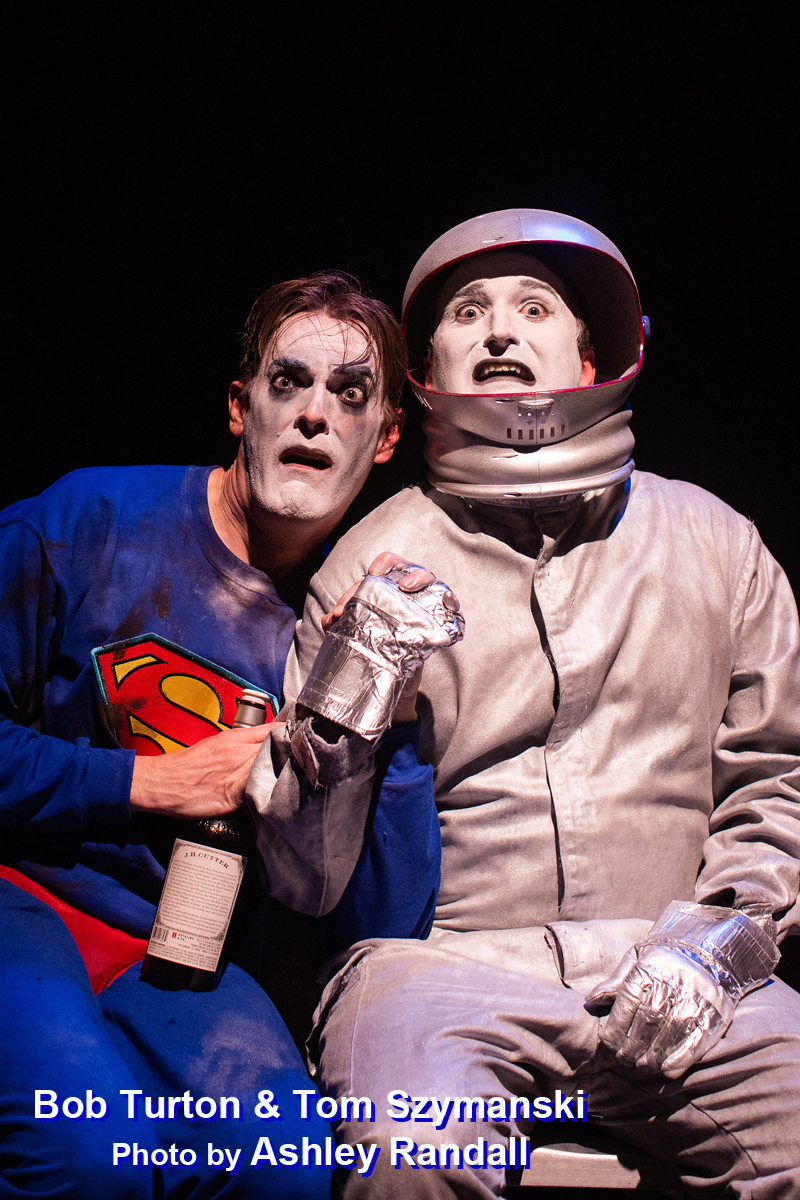 So, a theatre-goer that caught VIOLENCE in 1986 wouldn't notice any significant changes in the 2019 production?
So, a theatre-goer that caught VIOLENCE in 1986 wouldn't notice any significant changes in the 2019 production?
No, they'd be too busy being freaked out by our new, gilded-age surveillance capitalism to notice what was happening on stage.
When do you typically lock in your script?
I'm not sure the scripts are ever locked - so much depends on the energy and comic spirit of the cast. Besides - with a few exceptions (possibly Beckett, if only for legal reasons), I think there's no point to live theater if there isn't always at least a slight element of improvisation. That's the point of ALL live art I believe - even classical music at its peak was filled with improvisation, Mozart and Beethoven improvised constantly when performing their works. Performance arts become somewhat moribund when we banish the improvisational element from them. That's a lot of what happened to classical music after the late 19th century. Who today still dares to improvise while playing Beethoven or Mozart? I'm pretty sure seeing one of those guys before, back in the day, would be a lot more like going to see Keith Jarrett now, then it would be like seeing a performance of their own work today. And surely there's no good production of Shakespeare that doesn't contain improvisatory elements. And even movie and television scripts have to constantly be open to some elements of inspiration of the moment. I have no patience with writers who are excessively precious, and treat lines of their dialogue like they were dictated by God and engraved in stone.
What cosmic forces originally brought you and Tim and the Actors' Gang
together?
In retrospect, it does feel quite destined. It was literally only my second day in Los Angeles in the summer of 1985. I was brought to a party on the beach in Santa Monica, and ended up talking, literally all night, with a very tall, very brilliant, very funny man of about my age; and by the end of that night, he convinced me to come see his theater group do a workshop the next day in downtown L.A. and to write something for them. And though I was not a writer at the time and made that very clear to him, he insisted, "No, I'm quite sure you are in fact a writer." That was Tim and, for better and for worse, he has proved correct. I think he saw where my gifts lay at that moment more clearly than I did. That's one of the reasons that, in addition to being such a great actor, he has always been such a great director.
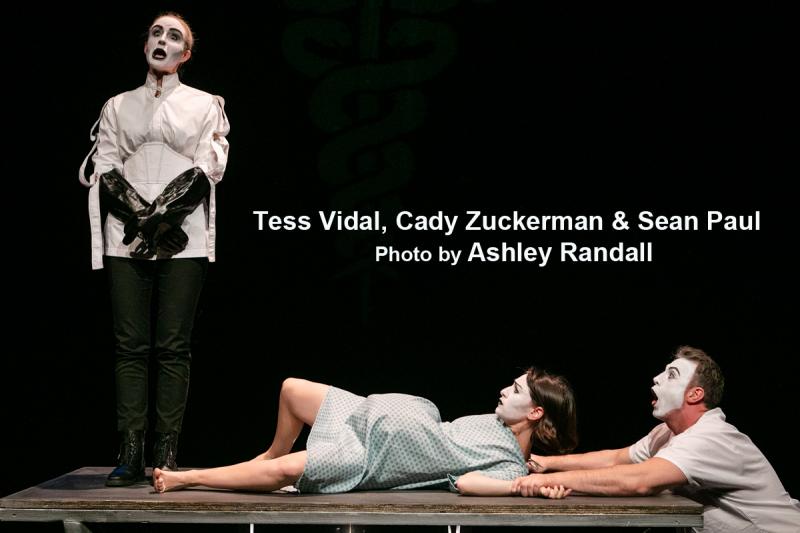 Have you collaborated with Tim on other projects besides VIOLENCE, CARNAGE and ALAGAZAM?
Have you collaborated with Tim on other projects besides VIOLENCE, CARNAGE and ALAGAZAM?
We may have kibitzed or commented on other things, but no, these three are the core of our collaboration. Though who knows about the future - we're always talking about getting into some more trouble together.
How did you reprogram your mindset between writing Roger Corman films, TV
shows and political satire?
Actually the Corman sensibility and The Actors' Gang's were very close - tons of humor and political satire and no laughs without screams, no screams without laughs.
Plus I wrote most of the Corman films I directed with specific Actors' Gang actors in mind - The Actors' Gang is all over my Corman movies, in spirit as well as flesh!
What are your pros and cons of writing by yourself as opposed to working with a co-writer?
It completely depends on what type of writing. These plays of ours were in many ways, as I said before, collective works. And while they were guided by Tim and me, and may had their origins in a story of his or mine in each case, the actors contributed enormously. Most of my film writing has been more solitary, even if done to serve a particular director or actor. Television, in my still limited experience, has been a revelation - or I should say, a renewed revelation - that I hadn't experienced since my days with the Gang, of how collective and collaborative writing can be. I suspect that some work really intended or directed at individuals, and meant to be received generally by a solitary reader (novels, poems), come best from the heart, mind and soul of an individual. While many works, especially in popular media (which are really aimed squarely at the collective) also have to somehow come from a collective. There's always a guiding sensibility, a singular creative force. But in good television, as it was, I think, in classic Hollywood; it's more like it once was in painting - as in "from the workshop of" some particular painter.
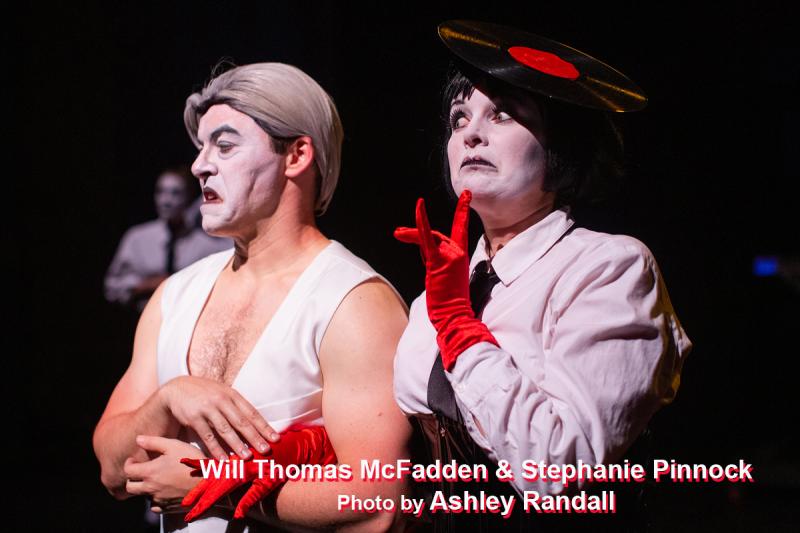 Do you find you have to rein in your directorial impulses when your script
Do you find you have to rein in your directorial impulses when your script
is being directed by someone other than yourself?
Certainly in movies that's true. You do your best to encode your vision on the page, and then, you pretty much have to let it go. But in television, not at all. The writer is truly the producer and must guide the work all the way through.
There are some outstanding television directors, but unlike in the movies, the director is more of a cast element much as the actors are - chosen by the writer/creator for the ways they serve the larger vision of the series.
Which format is more challenging for you - writing for the theatrical stage, television or film? Or they all equally surmountable?
I frankly haven't had enough experience writing for the stage to really judge it. In middle-age now, I am seeing and reading more theater than I ever did before, and I'm filled with respect and inspiration from that. Not only was I basically a kid when I worked on these early plays, I had barely ever seen a play or read one. Compared to the theatrical work of the past and present that I now love, I would hardly call myself a playwright at all.
I think screenwriting whether for film or television has particular challenges unlike any other form of prose writing. Mostly because almost every sentence that you write has to serve multiple functions - not only telling a story, but implicitly and explicitly giving a set of instructions to many other artists on how to tell that story.
The key is the screenwriter's audience is not, in fact, the audience for the film or TV show itself, but rather those who are going to make that film or TV show - and in that, lies all the difficulty, all the real challenges, but also the real fun. Of course, the most melancholy aspect of it all is, if you do your job well on the page, few, if any, will ever read those words again, and instead they will simply enjoy the film or show they created. Unlike novelists, poets or even playwrights, film and TV writers write in disappearing ink.
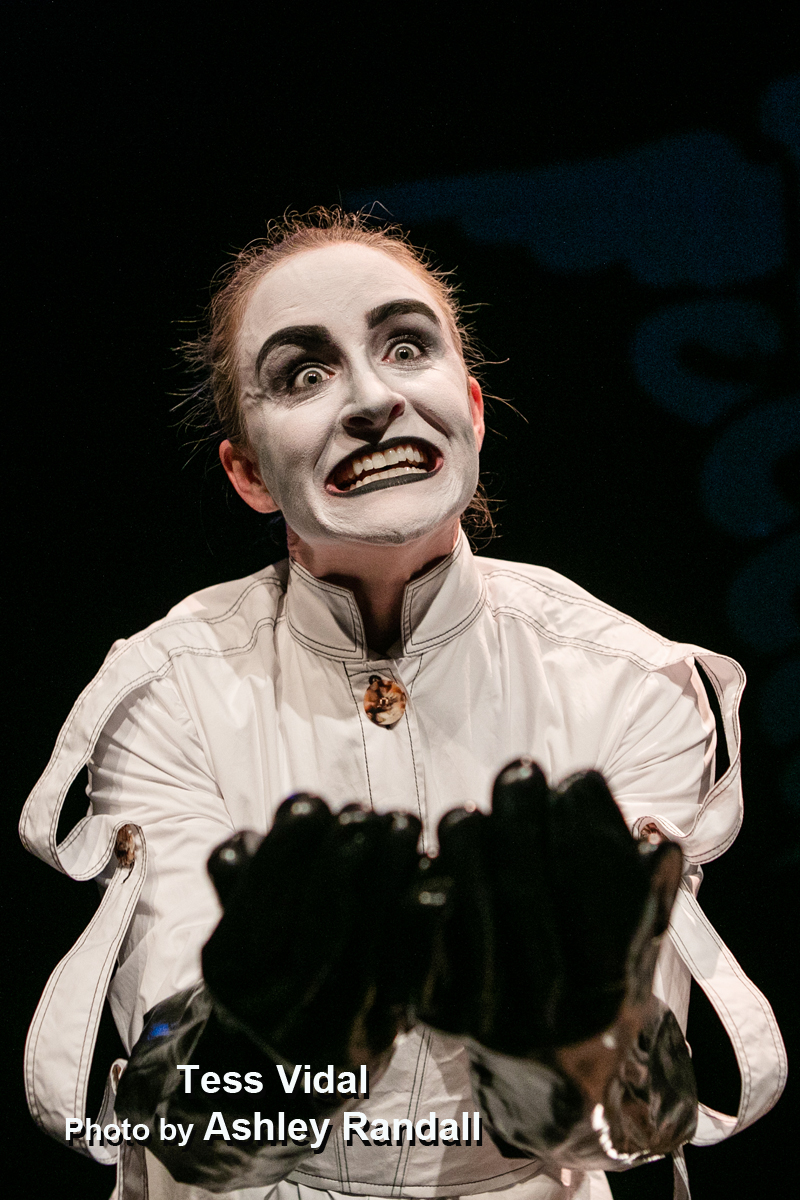 If you had your druthers (and finances were not a factor), would you rather exercise your directing chops, your writing expertise or your producing acumen? And in which format - stage, television or film?
If you had your druthers (and finances were not a factor), would you rather exercise your directing chops, your writing expertise or your producing acumen? And in which format - stage, television or film?
Yiddish haiku. No, actually there's no doubt, television, at least as it's practiced today, is the most fun and fulfilling. It shares many elements with what I loved most about the theater, and even about my old drive-in movie days - the "Hey, kids. Let's put on a show!" aspect of it, the sense of community. I also truly madly deeply love serialized storytelling, and feel very lucky to live in a moment when it has come to the fore once again.
Do you keep a running journal in your mind of daily political events?
I keep all kinds of notes and journals, but very rarely on political elements. In fact especially these days, I only allow myself to read the news for a short and circumscribed time each day. Otherwise, it just takes over. I actually believe too many of the best minds of our time are kept in a state of frenzied distraction by the relentless pace of outrage. I try to remember that, unlike in space, we find ourselves in time walking backwards -with no idea of the future and actually only a very limited peripheral vision of the present, but if you're lucky and if we are patient and concentrate, we may have some vision of where we came from - that's it.
Especially when it comes to politics, I drink it in a cocktail mixed of ten-parts history to one-part contemporary politics...
How often do you need to turn the daily news into one of your satirical
commentaries?
I think if you're living and creating authentically in the moment, there's little need to address it so directly. My last show, Salem, in retrospect seems constantly to have been in dialogue with much of the politics of its time - but we never consciously aimed at that.
The plays Tim and I did together contained within them the history of theater as satire, as the news of the day, as agitprop and as sheer vaudeville. But this probably has to do with the central role the commedia dell'arte played in the core DNA of what The Actors' Gang always was. Commedia itself is always both utterly timeless and totally up-to-date. You don't have to update Molière to make it relevant - it's always relevant. I can't quite say the same for our work, but that's certainly more where we were aiming.
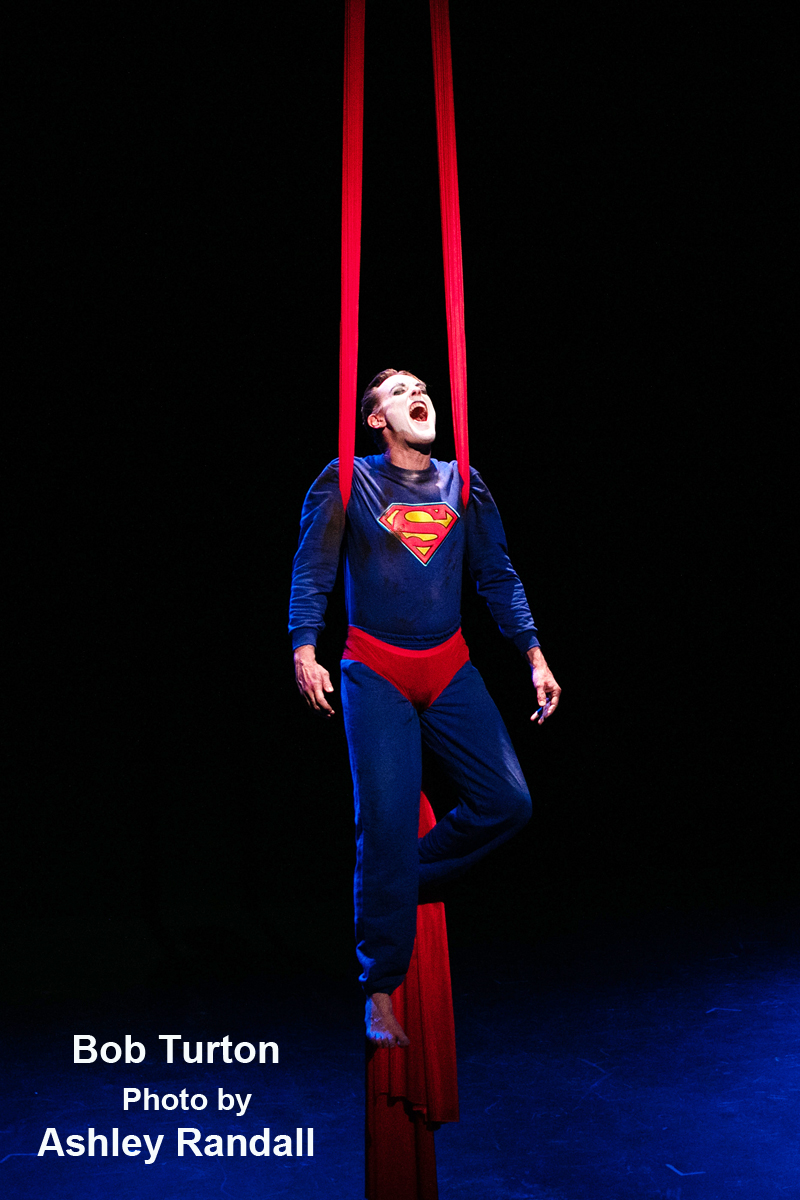 What's next on the plate of Adam Simon?
What's next on the plate of Adam Simon?
The last year or so has been a really fun one for me, somewhat typical blend of genres - from adapting the great Valiant comic book Shadowman for the big screen to adapting Clive Barker's genre-changing Books of Blood for the small. And a few wild cards in between...
What feelings would you like The Actors' Gang audiences to leave with after the curtain call?
Sides aching from laughter, and yet a little tear in the eye, and maybe a nagging thought in the brain.
Thank you again, Adam! I look forward to recognizing Spike's alter-ego.
My pleasure - and I hope you and many others enjoy taking this time capsule back to that very strange time in the late 20th century...
For ticket availability and show schedule through June 22, 2019; log onto www.theactorsgang.com
Comments
Videos

